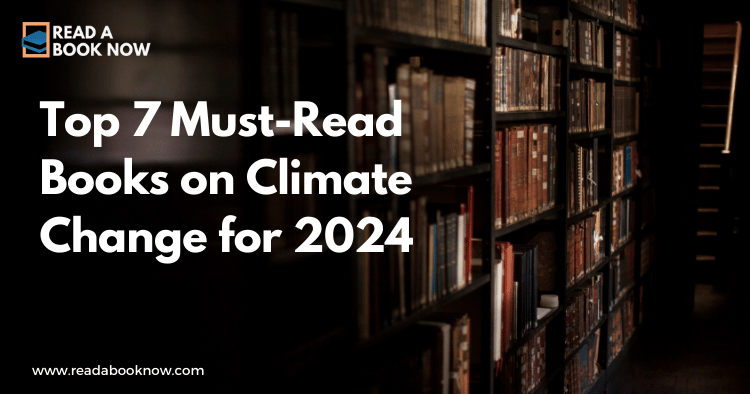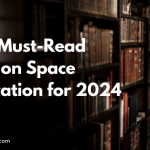Table of Contents
- Introduction
- 1. “The Uninhabitable Earth” by David Wallace-Wells
- 2. “This Changes Everything” by Naomi Klein
- 3. “The Sixth Extinction” by Elizabeth Kolbert
- 4. “Field Notes from a Catastrophe” by Elizabeth Kolbert
- 5. “Our Final Warning” by Mark Lynas
- 6. “Climate Justice” by Mary Robinson
- 7. “The Hidden Life of Trees” by Peter Wohlleben
- Conclusion
- FAQs
Introduction
As we head into 2024, the urgency to address climate change becomes more pressing. Books have the power to enlighten, inspire, and motivate action. In this article, we’ve curated a list of the top 7 must-read books on climate change that will not only inform you but also arm you with the knowledge to advocate for our planet. Each book provides a unique perspective on climate change, from scientific data to human experiences and environmental justice.
1. The Uninhabitable Earth by David Wallace-Wells
David Wallace-Wells presents a stark and urgent portrait of a world under siege by climate change in “The Uninhabitable Earth.” This book is based on his viral article in New York Magazine and expands that warning into a comprehensive narrative.
Why You Should Read It
Wallace-Wells dives deep into the consequences of climate inaction, using a blend of research and vivid storytelling. He discusses scenarios like extreme weather events, the collapse of ecosystems, and the potential for societal upheaval. If you’re looking for a wake-up call, this book is it.
“The future is not predetermined; our actions today can steer the course of our planet.”
Key Takeaway
The book emphasizes that the future is not predetermined and that our actions today can steer the course of our planet.
Learn more about climate change impacts here.
2. This Changes Everything by Naomi Klein
Naomi Klein’s “This Changes Everything” argues that climate change is not just an environmental issue but a profound social one. Klein connects the dots between capitalism and climate, advocating for systemic change.
Why You Should Read It
Klein’s writing is passionate and persuasive, making a compelling case for why we must rethink our economic models to combat climate change effectively.
“Economic inequality exacerbates climate issues; collective action is necessary for real change.”
Key Takeaway
The book outlines how economic inequality exacerbates climate issues and calls for collective action and policy reform.
Check out additional insights on climate justice.
3. The Sixth Extinction by Elizabeth Kolbert
In “The Sixth Extinction,” Elizabeth Kolbert explores the ongoing biodiversity crisis, arguing that human activity is driving an unprecedented wave of extinction.
Why You Should Read It
Kolbert travels the globe to document the impacts of climate change on various species and ecosystems, making the science accessible and engaging.
“Our role in preserving biodiversity is crucial, as every species is interconnected.”
Key Takeaway
The book serves as a reminder of the interconnectedness of life on Earth and our role in its preservation.
Explore more about biodiversity loss.
4. Field Notes from a Catastrophe by Elizabeth Kolbert
Another excellent read by Kolbert, “Field Notes from a Catastrophe,” takes a journalistic approach to climate change, focusing on personal stories and on-the-ground observations.
Why You Should Read It
This book chronicles Kolbert’s travels to various vulnerable locations, showcasing real-life consequences of climate change. It melds scientific data with human experiences, making it relatable and urgent.
“Climate change is not a distant threat; it’s happening now, affecting lives and livelihoods.”
Key Takeaway
Kolbert highlights that climate change is not a distant threat; it’s happening now, affecting lives and livelihoods.
Read more on current climate impacts.
5. Our Final Warning by Mark Lynas
Mark Lynas’s “Our Final Warning” is a clarion call for immediate action. Lynas draws on scientific research to outline the dire consequences of inaction.
Why You Should Read It
This book is a synthesis of the latest climate science, making complex topics digestible. Lynas emphasizes that we are at a critical juncture and that immediate action is necessary to avert catastrophe.
“Renewable energy and sustainable practices are key to tackling climate change effectively.”
Key Takeaway
The emphasis is on renewable energy and sustainable practices as the keys to tackling climate change effectively.
Discover more about renewable energy solutions.
6. Climate Justice by Mary Robinson
Mary Robinson, former President of Ireland, offers a unique perspective in “Climate Justice,” focusing on the intersection of human rights and climate change.
Why You Should Read It
Robinson shares stories from around the world, highlighting how climate change disproportionately affects marginalized communities. Her narrative is both personal and policy-oriented.
“We must ensure that the voices of the vulnerable are heard in climate discussions.”
Key Takeaway
The book argues for justice in climate action, advocating for the voices of the vulnerable to be heard in discussions about climate policies.
Learn more about climate justice initiatives.
7. The Hidden Life of Trees by Peter Wohlleben
In “The Hidden Life of Trees,” Peter Wohlleben reveals the fascinating world of trees and their critical role in combating climate change.
Why You Should Read It
Wohlleben’s writing is filled with love for nature and is backed by scientific research. He explains how trees communicate, nurture, and support each other, emphasizing their importance in our ecosystems.
“Understanding the life of trees can inspire greater appreciation and action for forest conservation.”
Key Takeaway
Understanding the life of trees can inspire greater appreciation and action towards forest conservation, which is crucial in the fight against climate change.
Explore more about forest ecosystems.
Conclusion
These seven books offer a comprehensive understanding of climate change, each from a unique angle. They challenge us to think critically, act urgently, and engage with the pressing issues our planet faces. By reading these works, you’ll be better equipped to discuss climate change and advocate for sustainable solutions.
FAQs
Why should I read about climate change?
Reading about climate change helps raise awareness and equips you with the knowledge to understand the complexities of the issue. It can also inspire action and advocacy.
Are these books suitable for beginners?
Yes! While some books delve into scientific details, many are accessible and engaging for readers new to the topic.
How can I contribute to combating climate change?
You can make changes in your lifestyle, support sustainable practices, advocate for policy changes, and educate others about the importance of climate action.
Where can I find these books?
These books are widely available at bookstores, online retailers, and libraries. Consider supporting local bookstores or checking out eBook and audiobook options for convenience.
By exploring these must-read books, you can join the conversation on climate change and contribute to building a more sustainable future. Happy reading!




